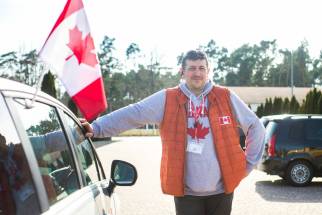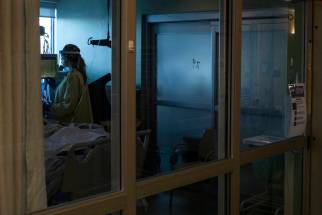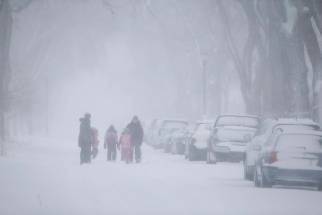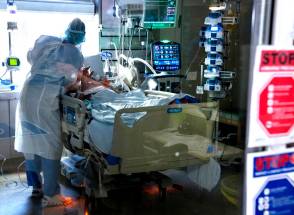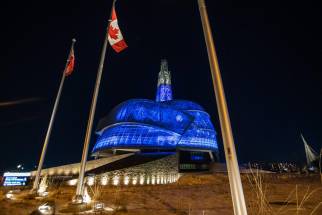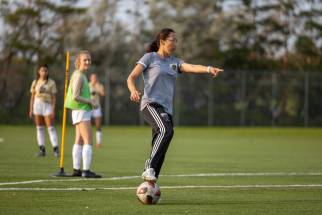From Odesa, by way of Pinawa, with love New Manitoban leaves Whiteshell paradise for Poland, sets up non-profit to help Ukrainians running for their lives from ‘Russian idiots’
Read this article for free:
or
Already have an account? Log in here »
To continue reading, please subscribe:
Monthly Digital Subscription
$0 for the first 4 weeks*
- Enjoy unlimited reading on winnipegfreepress.com
- Read the E-Edition, our digital replica newspaper
- Access News Break, our award-winning app
- Play interactive puzzles
*No charge for 4 weeks then price increases to the regular rate of $19.00 plus GST every four weeks. Offer available to new and qualified returning subscribers only. Cancel any time.
Monthly Digital Subscription
$4.75/week*
- Enjoy unlimited reading on winnipegfreepress.com
- Read the E-Edition, our digital replica newspaper
- Access News Break, our award-winning app
- Play interactive puzzles
*Billed as $19 plus GST every four weeks. Cancel any time.
To continue reading, please subscribe:
Add Free Press access to your Brandon Sun subscription for only an additional
$1 for the first 4 weeks*
*Your next subscription payment will increase by $1.00 and you will be charged $16.99 plus GST for four weeks. After four weeks, your payment will increase to $23.99 plus GST every four weeks.
Read unlimited articles for free today:
or
Already have an account? Log in here »
Hey there, time traveller!
This article was published 19/04/2022 (1331 days ago), so information in it may no longer be current.
WRZEŚNIA, Poland — The horses watch with cursory interest as three-year-old Timur Mykholevskiy tries to scramble over the lower planks of a fence that leads away from the pen. It’s a valiant effort, but the boy’s legs are too short to quite carry him over, so he wriggles and grunts and finally stretches his hand towards two visiting reporters.
Ukrainian Refugee Crisis
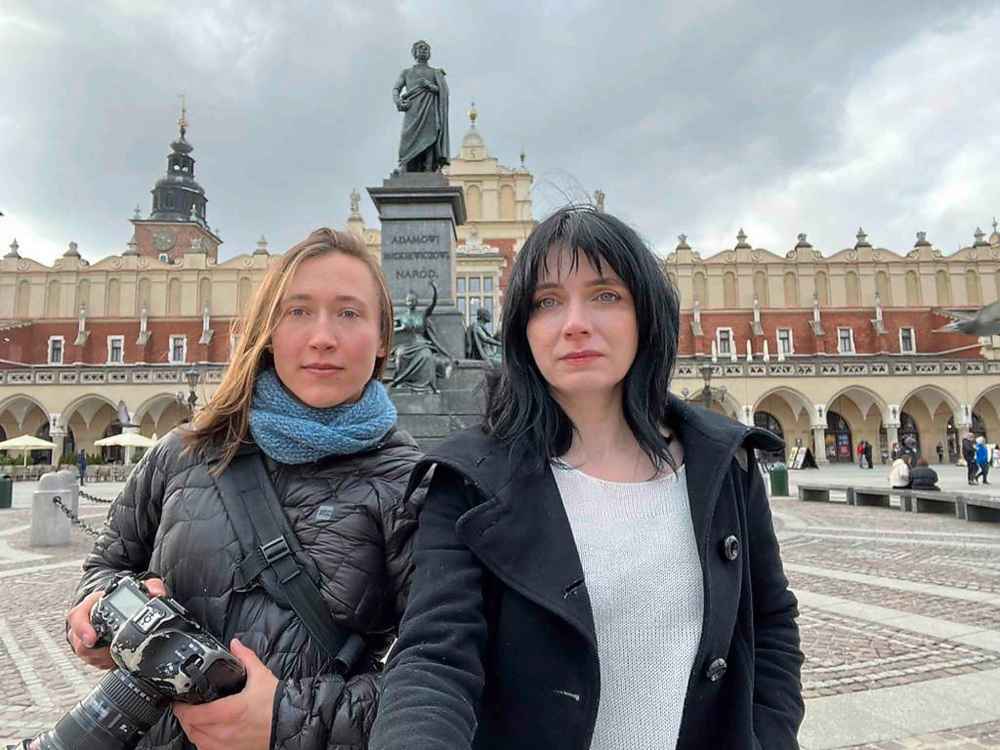
Posted:
As the world watches in horror the Russian invasion of Ukraine, and as Manitobans prepare to open their arms to refugees, the Free Press has sent writer Melissa Martin and photographer Mikaela MacKenzie to Poland to report on the largest refugee crisis in Europe since the Second World War.
“Help me,” he commands, in clear-as-a-bell English.
His mother, Alina Mykholveska, laughs. She’s been teaching him a little English, she says, to prepare him for his new life in Winnipeg. He’s soaked it up the way children always do a new tongue, which is to say, exuberantly: “Sing the ABC song,” she says, and as he pipes into the melody, his face spreads into a cheeky grin, shaded by a cap emblazoned with a Maple Leaf.
Nearby, Alexander Leontiev watches, with a wry and tender smile.
“You know, I make a gift for him, that hat,” he says, pointing to the boy’s distinctly Canadian ball cap.
It’s not surprising. There’s no mistaking where Leontiev’s from, as he strolls around Września. He wears an Old Navy sweatshirt with a big red CANADA logo. He drives an SUV dotted by Maple Leaf decals and flags. Around his neck he wears a lanyard, holding a credential bearing a tiny Canadian flag, part of the logo for UPC International Humanitarian Assistance Group.
The acronym stands for Ukraine, Poland and Canada. The organization, though, is a little smaller than that.
“It’s just me,” he says, and laughs.
That’s not exactly true, but the non-profit is his endeavour. Since arriving in Poland just days after the war started, Leontiev has been largely based here, a town about 260 kilometres west of Warsaw. In normal times, it has just 28,000 people; but since the refugees from Ukraine started spilling into this region, Leontiev estimates the population has nearly doubled.
He’s brought many of those people here himself. His own mother is here, and his mother-in-law, and his sister, staying in a sleek new apartment donated by a local businessman. When a friend of his late father fled bomb-ravaged Chernihiv, Leontiev brought him to Września, too.
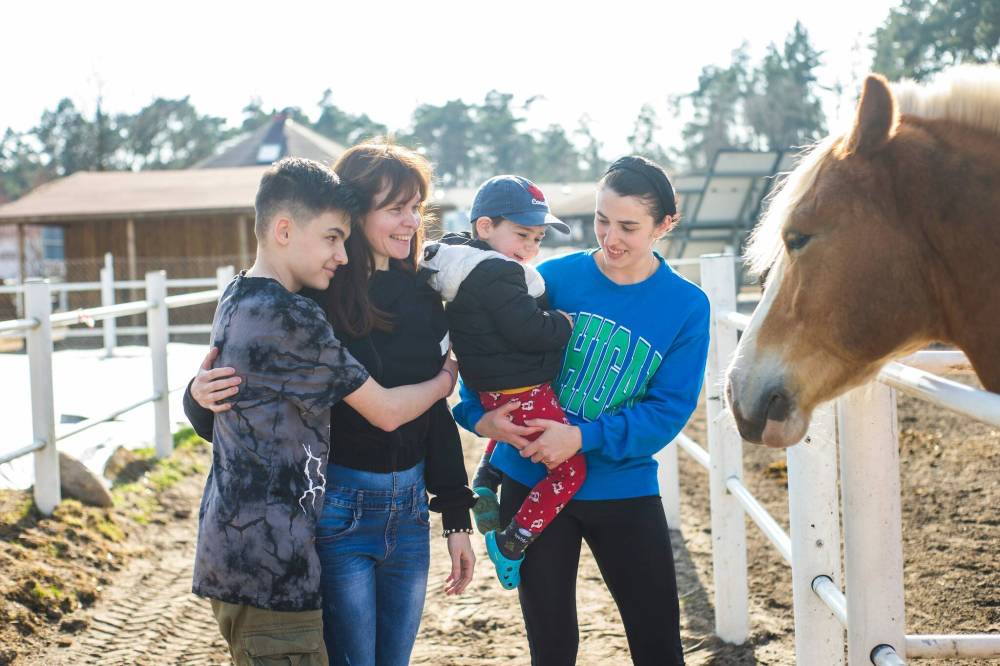
Then there was the day he got a call from a friend in Winnipeg, a relative of Mykholveska and her little boy, Timur. They had fled from Vinnytsia, in western Ukraine; Leontiev drove to Warsaw, picked them up and took them back to this ranch a short drive from Września — pronounced “Zheshnia” — which the owner has opened for more than 30 refugees.
It’s a nice place for the kids, Leontiev thinks, one of many such idyllic havens in Poland. It’s set up for summer camps, with bunk beds and a cosy communal kitchen. The horses are docile and friendly, and curious goats cavort around their pen. It’s good for the refugees’ mental health, Leontiev says, to spend time with nature and animals like this.
“What my people have seen, and what they feel, I understand that I just should help them,” he says, after climbing back into his SUV and hitting the road back towards Września. “They have broken psychology. And again, I can’t believe that in 21st century, we have centre of Europe, war. I can’t believe that. It’s crazy.”
He’s quiet for a moment, but then an abrupt change of subject: “When are you going to come visit us in Pinawa?”
This is a love story, in a way, about a love of land and of people, stretching from Pinawa to Ukraine.
For instance: from the moment Leontiev laid eyes on Pinawa, he was in love. In love with the trees, the water, the bears that amble through the forest, the fresh Whiteshell air that greets him every morning. And he was in love with the fish that swam through the river nearby, and throughout Manitoba: once, he caught a 137-centimetre sturgeon on Lake Winnipeg.
“It was like dreaming, I can’t sleep for one night after that,” he says. “I sent a picture to all my friends. Sometimes twice.”
That was exactly the kind of life Leontiev hoped for when he moved his family to Canada in 2018.
The move was something of a dream. He’d grown up in Odesa, born to a Russian-speaking Jewish family that traced its roots back to the Ephrussi clan that was, in the 18th and 19th centuries, one of the wealthiest in the Black Sea port city. As a young man he moved to Września to start a business importing light fixtures.
By the time he was nearing 40, though, he was ready for a change. He and his wife visited Canada for the first time in March 2018, going first to Cambridge, Ont., where his son planned to attend university. Within days, the couple were meeting with an immigration lawyer, who advised that their best bet for moving to Canada was to buy a business.
“Step by step it was green light for us. I really feel that someone, somewhere, help us.” – Alexander Leontiev
So they spoke to a friend from Ukraine, who now owns an Esso in Rosenort, and flew to Manitoba to get the lay of the land. They started browsing businesses for sale on Kijiji. One caught their eye almost immediately: the Pinawa Motel, a quaint 11-room lodge popular with tourists and ice fishers and anyone who wants to spend time in the Whiteshell’s nature.
From that first visit, Leontiev says, Pinawa felt “like paradise.” The motel purchase came together relatively quickly.
“Step by step it was green light for us,” he says, and he points at the sky. “I really feel that someone, somewhere, help us.”
The couple had no experience with the hotel business, but they embraced it anyway, making friends in town and running an active Facebook page to promote Pinawa’s various delights. Their daughter, now 11, loved the town and her teachers, so that was nice. And they began to discover, to their bemusement, just how much Manitoba could feel like Ukraine.
For instance, he says, they thought it was funny how they’d keep meeting people with “typical North American” first names, but Ukrainian surnames. And sometimes when he drives down Highway 59, he looks out at the land and for a minute, it feels as if he’s back home. The scenery is the same as in Ukraine, he says, the same fields and trees and sky.
“Unfortunately right now, they have just broke this (Ukraine’s landscape), these Russian idiots,” he says. “But it’s very similar.”
And Leontiev was at home in Pinawa the day the war started. It was a normal sort of night, about 8 p.m. He was relaxing on the couch, drinking a beer and chatting with his wife, when he got a text from a friend in Ukraine. He read a single word, a code word they had agreed on in case the war started. In that moment, Leontiev’s heart broke.
“I was shocked,” he says. “And after, it was like news coming, coming, coming every second. It just was crazy.”
In the frantic hours that followed, he contacted all of his friends, and all his family. He begged them to get out of the country and get to Poland, where he’d help them make their way to Canada. What he wanted to do, above all, was go fight. It was too painful just watching it happen, he says; but his wife was firmly against that idea, so he looked for other ways to help.
That effort began in Pinawa. At first, they raised money for Ukraine via the motel’s Facebook page; when Leontiev decided to go to Poland directly, more support came in. An elderly man from town, who was born in Canada but speaks Ukrainian, gave them $200, and pledged to give more of his pension. The town rallied to hold fundraisers and donate to Leontiev’s cause.

On March 6, he flew to Warsaw, eager to start getting his family out and getting more humanitarian aid in.
As soon as he landed, what he saw left him shaken. He’d come of age in the 1990s, in post-Soviet Ukraine: “Believe me,” he says, “I saw a lot of s—t in this life, huge.” But none of it frightened him more than what he witnessed at the Warsaw airport that day: shocked refugees filling up the concourse, fleeing the war in a land that he loves to this day.
“I never seen so many people inside,” he says. “It was people with grey face. Clear eyes, like empty. And was noise around, like wolves in the night. It was so scary. It was the same, like scene from this (Oscar-winning Holocaust drama) Pianist movie. I saw it, I can’t believe it. I just wanted to wake up. It was really scary.”
From Warsaw he flew to Krakow, where he hired a car to take him to the Slovakian border and pick up his mother and his niece. Then he retreated to Września, where he still has many friends from his days importing light fixtures. (“Real friends,” he clarifies. “Not like, just, ‘Hi, hello how are you?’ It’s real friends.”) He started searching for places for his family to stay.
“It was all hands on deck here,” says Jan Spilliaert, one of Leontiev’s friends in Września. “That’s how it started, and he had the big luck that he found a guy who’s a developer of apartment units, so they found a nice place… the places that we see, they’re not always interesting. If they look s—tty, we don’t want to put refugees there. It doesn’t make sense.”
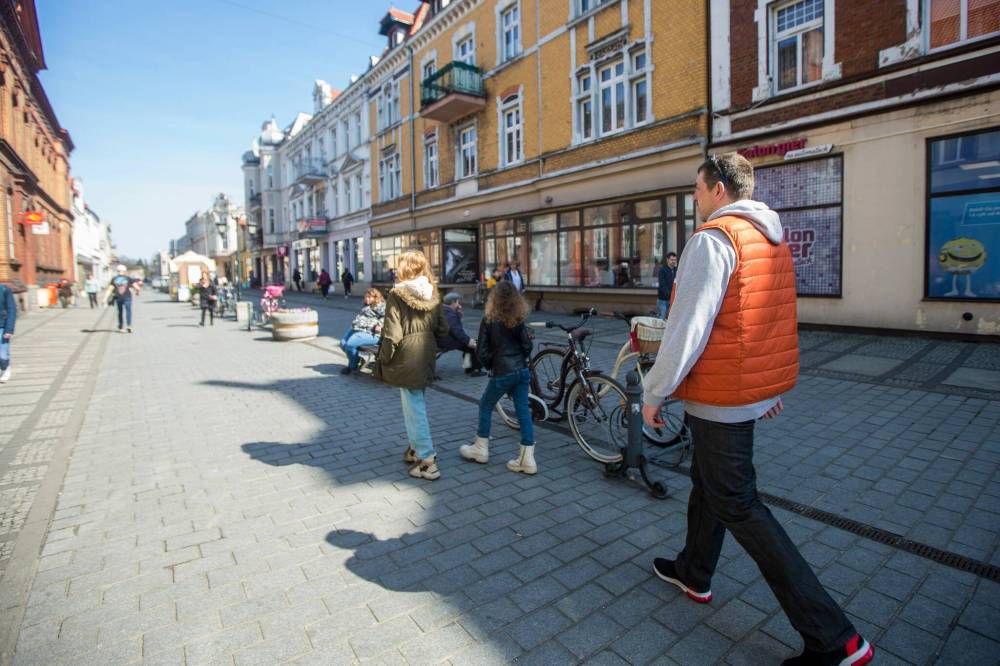
With the help of Spilliaert, a document translator and the honorary Belgian consul for the region, Leontiev began laying the groundwork for his next steps. He bought the SUV and covered it with Canadian flags. They formed an umbrella organization as UPC International Humanitarian Assistance Group, and made connections with others doing aid work nearby.
It helped that everyone seems to know Leontiev in Września. On a walk through the town’s stately main street, he pops into a photography store, where the owner has taken thousands of identification photos for Ukrainians free of charge; into a real estate office, where staff “help like crazy” in all sorts of ways; into a warehouse filled with toys and clothing for refugees.
They got more people into housing. They helped gather bundles of blankets and diapers to load onto trucks and send to Lviv. Doing all this, the days passed quickly, though the work was briefly interrupted when his Canadian permanent residency was approved. He had to return to Manitoba to complete it; after just 10 days at home, he flew back to Poland.
So that kept him busy, and from sinking too deep into the news of the war; but sometimes, it hits him.
“I can’t believe that it happened,” he says. “Even after almost two months, I can’t believe. It’s impossible.”
“In my blood: Jewish, Russian, Ukrainian, Polish, Turkish and something else that I don’t remember. And my wife: Russian, Polish, Jewish, Moldovan. And my kids, right? It’s a cocktail. And they tell me that I’m a Nazi. ‘I’m’ Nazi.” – Alexander Leontiev
Along with that disbelief, there was anger. He tried to wrap his mind around how a full-scale invasion could happen, tried to wrap his mind around what it cost in Ukrainian lives. Around his neck, he wears a gold Star of David on a chain; he pulls it out as he thinks about one of Vladimir Putin’s original stated goals, the “de-Nazification” of Ukraine.
“In my blood: Jewish, Russian, Ukrainian, Polish, Turkish and something else that I don’t remember,” he says. “And my wife: Russian, Polish, Jewish, Moldovan. And my kids, right? It’s a cocktail. And they tell me that I’m a Nazi. ‘I’m’ Nazi.”
He shakes his head, frustrated. “Idiots.”
That one-quarter Russian in his background was also, until recently, in his life. Every summer, for years, his relatives from Russia would travel to Odesa, where they’d visit together, go out to restaurants and relax on the beach. He has not had any contact from them since the war started, he says, and his family hasn’t either. Not a text, not a call, not an email.
Will he even be able to continue a relationship with them, once the war is over?
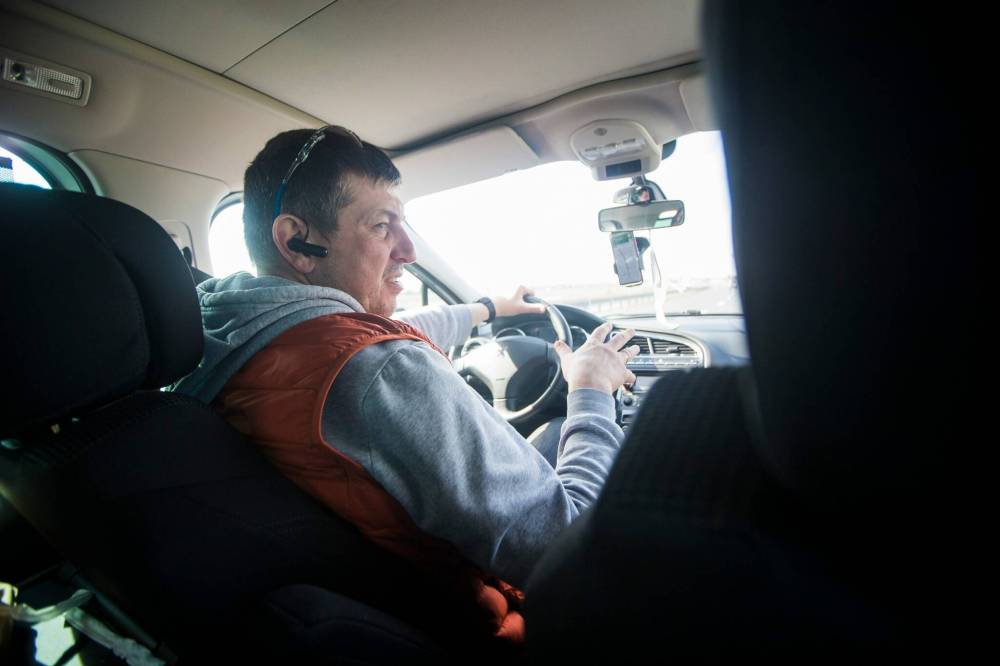
“No,” he says emphatically, before the question is even finished. “It’s over. For what? Why? They leave me, they leave my family, my kids, my people. And we would just continue (as family)? No, no, no.”
These frustrations also strike closer to home. In Winnipeg, he says, some diaspora members have suggested people should now speak only Ukrainian. Leontiev bristles at that idea: those people should come to the border themselves, he says. They should look at the refugees coming from the most war-damaged regions of the east, which are heavily Russian-speaking.
They should come, he says. Come tell those kids and old women they’ll only help the ones who speak Ukrainian.
“Those guys who talk about only Ukrainian speaking, I’m interested,” he says. “You guys live in Canada. Two official languages. So how you can make it different between Russian-speaking Ukrainians? What’s the difference? I’m worse Ukrainian, or what? It’s not normal.”
It’s not normal. Those are words he reaches for, over and over, to describe his grief and his anger, especially towards Russian soldiers and the Russian public that broadly supports the war. “It’s not normal,” he says, about the mounting evidence of war crimes committed against civilians. “It’s not normal” to drop bombs that kill children, or support sending more.
“What’s interesting is they think we just forgive them. We will just forget it. Why? And how?” – Alexander Leontiev
“What’s interesting is they think we just forgive them,” he says. “We will just forget it. Why? And how?”
He shakes his head again. “I never forgive them. Never.”
In Poland, many Ukrainians we met believed that the country will emerge stronger after the war. Leontiev isn’t so sure. Think of the damage, he says, and how long that will take to restore. It’ll be 20 years, he thinks, and right now Poland is helping Ukraine a lot, and so are countries such as the United States, but that won’t last forever.
Surely, though, he finds hope somewhere, or at the very least, something to help him keep going.
“Hope?” he says slowly, as if testing an unfamiliar word on his tongue, and for five seconds he says nothing else.
“I don’t know,” he says at last. “I just try to do something for my friends, for my relatives, for my people. Just because I can.”
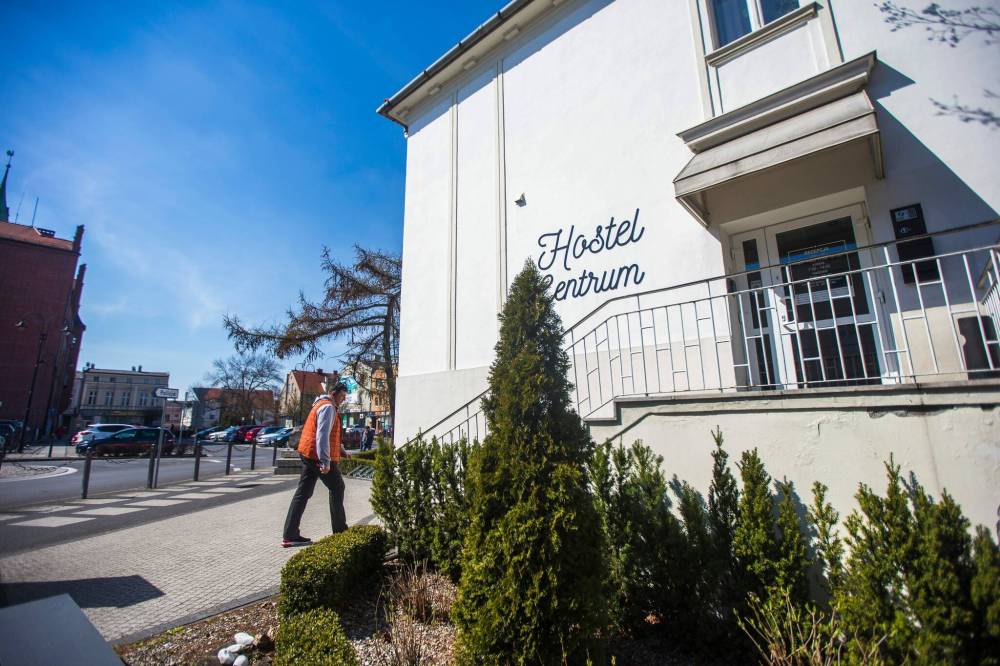
Still, the story is unfolding. That morning, he was happy to report, the latest shipment of humanitarian aid from Września reached Lviv. The next day, he was going to take Alina Mykholveska to give her fingerprints for her Canadian visa. At home in Pinawa, neighbours are planning more fundraisers, including a concert by a popular Elvis impersonator on May 28.
And all over the world, in every place Leontiev has called home, people are helping. At the end of this month, he’ll fly back home, but this time he won’t return to Pinawa alone: his relatives from Odesa will be with him. And as he talks through his frustration with the war and the response of the United Nations, he stumbles onto a word he’d struggled with before.
“I really hope that world will start changing,” he says, and then it clicks. “You ask me about hope? I hope the world changes.”
melissa.martin@freepress.mb.ca
Our newsroom depends on a growing audience of readers to power our journalism. If you are not a paid reader, please consider becoming a subscriber.
Our newsroom depends on its audience of readers to power our journalism. Thank you for your support.


